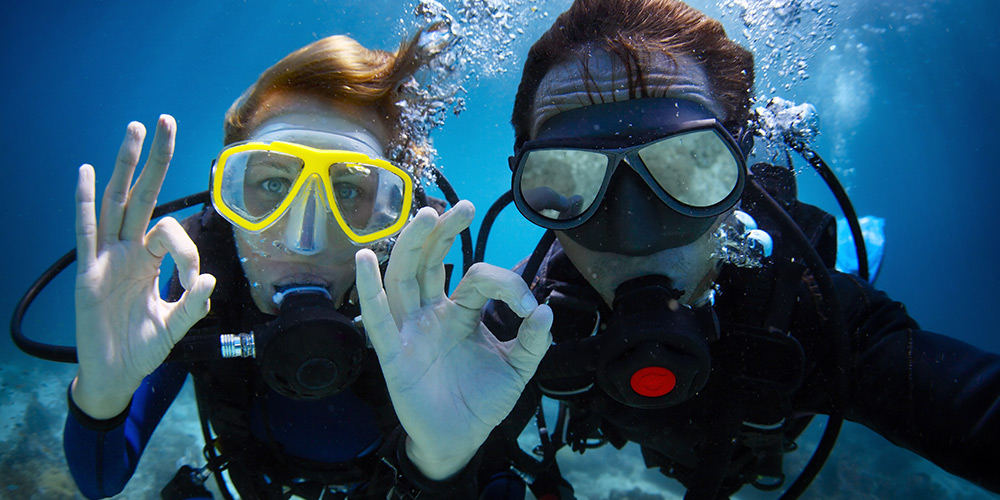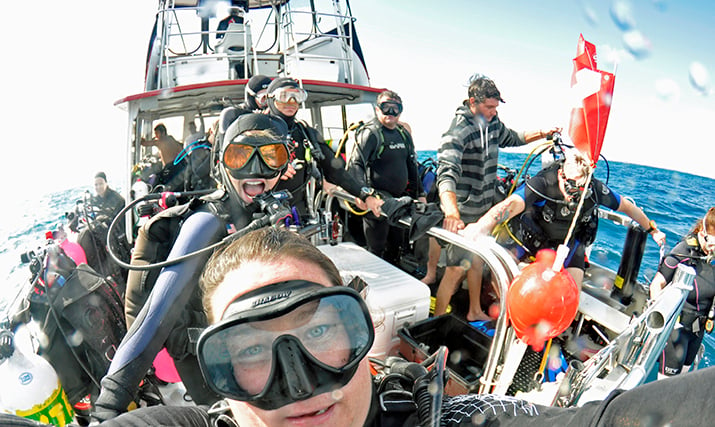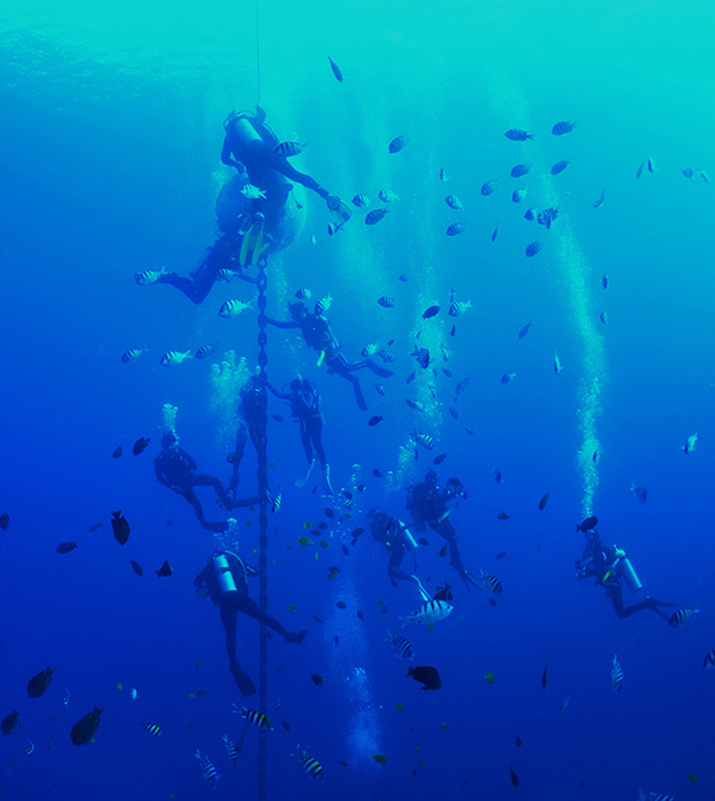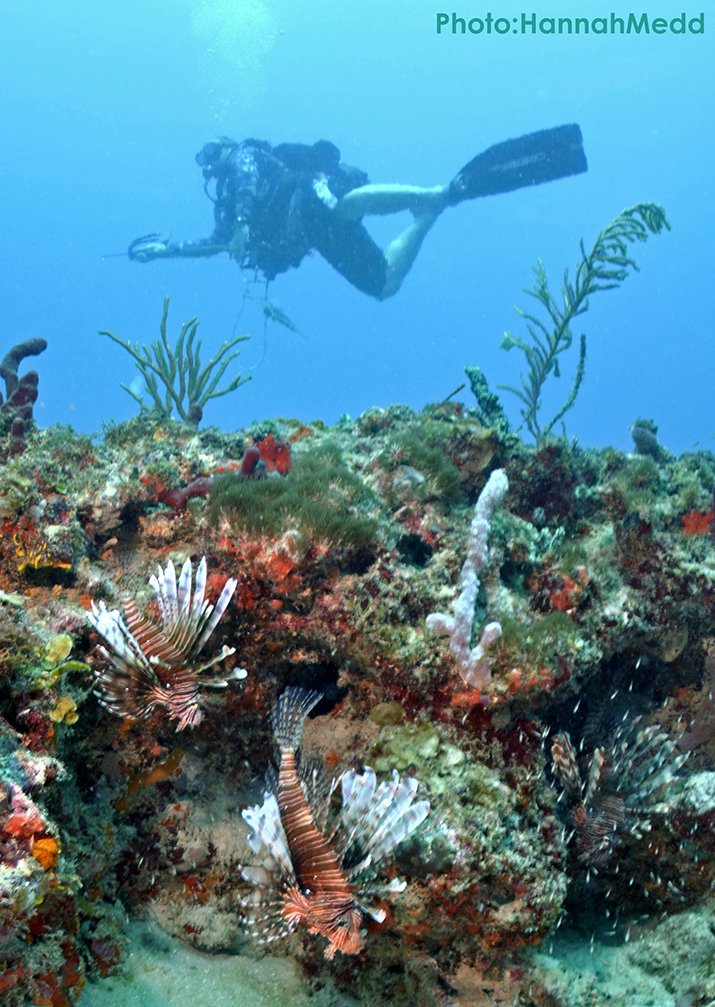

Moving about in heavy dive gear on a heaving deck can be a real workout!
Most of us resolve to better ourselves in the New Year and that often includes getting physically fit, stressing less and taking on new activities. One awesome waterlife activity that satisfies those resolutions is scuba diving. Diving helps develop lean muscles and flexibility, increases cardiovascular fitness and endurance, encourages healthy dietary habits and provides stress relief.
Build muscle and develop flexibility
It is easy to build muscle while participating in scuba diving. Most dives require some swimming, both with and against the currents, to and from the boat that has dropped you at a dive site or swimming to and from your point of entry along a beach. Pursuing spearfishing and photography can keep you swimming through much of your dives, chasing after your “targets”. Transporting dive gear can also help build muscle. Dive bags that include wetsuits, BCDs, regulators, mask, fins, snorkel, weights and tanks, can weigh more than 40 pounds and getting that from your home to the dive site definitely counts as weight lifting! To the untrained eye, dive gear and diving can look cumbersome but once you go through the certification training and gain some experience, your flexibility will increase as you learn exactly how best to maneuver in your gear and around the gear onboard boats.

Making a slow descent into the depths.
Improve cardiovascular fitness
Dives can last between 20-60+ minutes depending on many factors and as we learned, much of that can be swimming which is a very aerobically impactful activity. The good news is that as a diver increases their aerobic fitness through diving, the better their dives will be. As your body uses the oxygen in your blood more efficiently, the longer you will be able to stay underwater and the more amazing experiences and encounters you will have. Learning to stretch out your chest muscles can also increase lung capacity.
Encourage healthy dietary habits
Diving promotes proper hydration and dietary habits as they are essential to getting the most out of your dives. Being hydrated and nutritionally balanced can help avoid some of the health risks that can occur related to diving at depth.

Cruising over a reef teaming with life.
Get stress relief
The proper method of breathing when you dive is to take controlled, slow and deep breaths, similar to methods used in meditation to reduce stress and prevent anxiety and depression. This helps divers optimize their air consumption, avoid health risks and maintain a calm and relaxed state of mind. The diver can focus on the present moment and assess environmental and situational problems in a calm manner. Diving also provides an escape from what can be a stressful, topside world with obligations and distractions. Below the waves, a diver is forced to focus on the vibrant coral, the swaying kelp beds, and fascinating fish, surrounded by only the sound of his or her bubbles.
Diving also exposes you to other like-minded individuals who share a passion and you will find a strong sense of community no matter where you dive worldwide. Sharing stories of dive experiences increases social satisfaction and overall healthy connections with your fellow humans.
Remember, the more you dive, the fitter you get; and the fitter you get, the better your dives will be.